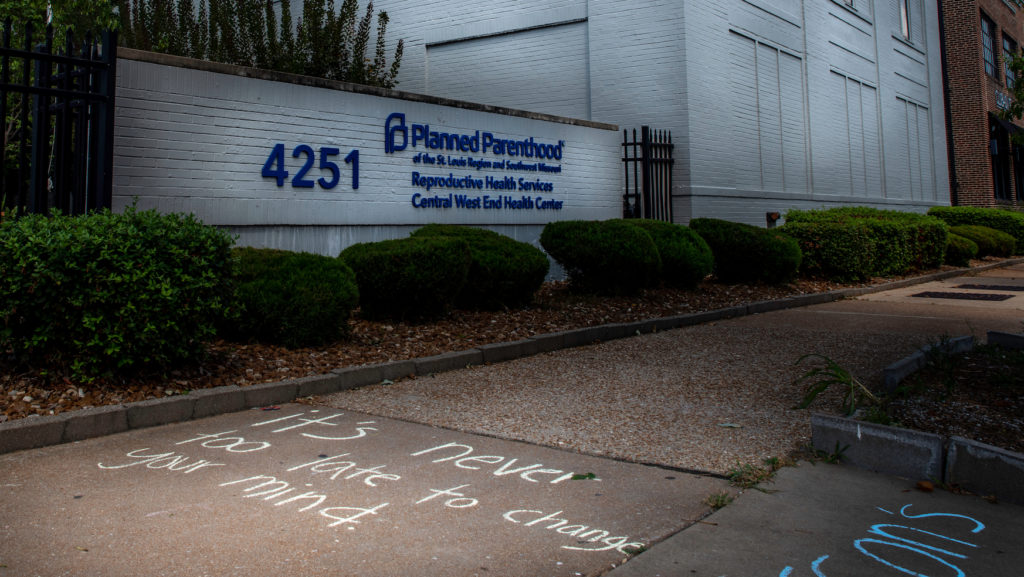A panel of judges of the U.S. Court of Appeals for the District of Columbia Circuit on Aug. 15 revived a 2020 suit filed by pro-life activists who alleged the city acted unconstitutionally when police arrested them for drawing anti-abortion messages in chalk on a sidewalk outside a Planned Parenthood clinic in the nation's capital.
The protesters allege the city's treatment of them in 2020 was disproportionate to racial justice protesters who wrote "Black Lives Matter" graffiti on public spaces, arguing that such instances were not met with comparable consequences amid protests over the death of Minneapolis man George Floyd while he was in police custody.
Alliance Defending Freedom attorneys representing members of the Frederick Douglass Foundation and Students for Life of America -- of which the pro-life protesters, Erica Caporaletti and Warner DePriest, are members -- later filed a lawsuit alleging the District of Columbia engaged in selective enforcement and viewpoint discrimination in their arrest, but a U.S. District Court dismissed their lawsuit in 2021.
However, the three-judge appeals court panel issued a unanimous ruling that reversed the lower court's dismissal of the lawsuit, allowing it now to move forward. The panel found that while a D.C. law prohibiting defacement of property is constitutional, the anti-abortion protesters can continue their lawsuit alleging that the law was unevenly applied to them during their arrest for writing "Black Pre-Born Lives Matter" outside the clinic located less than two miles north of the U.S. Capitol building.
"The government may not play favorites in a public forum -- permitting some messages and prohibiting others," the ruling said. "The District may open up its streets for painting messages to all viewpoints; and the District may later decide to enforce its defacement ordinance against all viewpoints. What the District cannot do consistent with the First Amendment is open its streets for the painting of some messages and not others."
The judges did not weigh in on the merits of the pro-life protesters' arguments, only allowing their case to proceed. The case will return to trial court.
"Washington officials can't censor messages they disagree with," said Erin Hawley, senior counsel at Alliance Defending Freedom and vice president of the ADF Center for Life and Regulatory Practice, who had argued on behalf of the pro-life organizations before the court. "The right to free speech is for everyone, and we're pleased the D.C. Circuit agreed that the Frederick Douglass Foundation and Students for Life should be able to exercise their constitutionally protected freedom to peacefully share their views the same as anyone else," she said in a statement.
"Every American deserves for their voice to be heard as they engage in important cultural and political issues of the day," added Hawley, who also is the wife of Sen. Josh Hawley, R-Mo.
Students for Life of America President Kristan Hawkins said in a statement that "it's very encouraging that there was a unanimous 3-0 decision in favor of the free speech rights of pro-life students, peacefully protesting in our nation's capital."
"Viewpoint discrimination is un-American, and, as the case proceeds, we look forward to learning more about how D.C. officials picked winners and losers in their enforcement," Hawkins said. "Free speech rights you're afraid to use don't really exist, and we will keep fighting for the rights of our students to stand up for the preborn and their mothers, and against the predatory abortion industry led by Planned Parenthood."
According to court documents, the District of Columbia argued that "challenging circumstances" amid the 2020 riots that coincided with racial justice protests required "difficult decisions about allocating limited police resources and prioritizing public safety" and the circumstances of the smaller, pro-life protest were not comparable.

